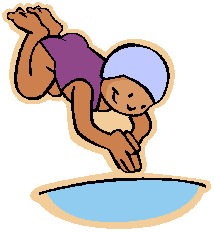I am about to present a piece of work by Mark Prensky named Digital Natives, Digital Immigrants from On the Horizon (2001). Using an idea from my friend cambia-todo-cambia my review will have the following structure. First there will be a description of his work. This constitutes the
Body. Secondly I will give my own thoughts and reflections on this issue. This represents the
Soul. Finally I will bring critique from other sources to discuss Marc Prensky's work. The
Spirit.
Digital Natives, Digital Immigrants
In his article Marc Prensky makes the observation that today's young generation has experienced a change more invasive than any other generation before them. This is due to the fact that they have grown up in a world of information technology of television, computers, internet, video games and cell phones etc.
"Today's students think and process information fundamentally differently from their predecessors......and it is very likely that our students brains have physically changed- and are different from ours- as a result of how they grew up". To support these views Prensky quotes Dr. Berry of Baylor College of Medicine: "
Different kinds of experiences lead to different brain structures". Prensky leaves it open whether this is literally true . However, he observes that the thinking patterns of the young have changed and he names the younger generation of students "Digital Natives" because they are, so to speak , "native speakers of the digital language". Prensky calls the older generation "Digital Immigrants", because they find it difficult to keep up with the natives, because the immigrants keep their "accent" in other words "their foot in the past".
Prensky says this situation has very serious consequences for education today. The Immigrant educators have reached their use by date. They don't understand the Native's language. The Natives do not want to have to listen to the step by step, logical presentation of information or instruction any more, which has been used to impart knowledge to date. The Natives have new skills after years of practice." They are used to get information really fast". Consider Prensky's analysis of the students of today.
"Unfortunately for our Digital Immigrants teachers, the people sitting in their classes grew up on the "twitch speed" of video games and MTV. They are used to the instantaneity of hypertext, downloaded music, phones in their pockets, a library on their laptops, beamed messages and instant messaging. They've been networked most or all of their lives. They have little patience for lectures, step-by-step logic, and "tell-test" instruction"
Marc Prensky's answer to this dilemma is first to look at the methodology. Teachers should learn to communicate in language and style of the students and bring tempo into their teaching. It must go faster.
Secondly to recognise that writing, reading, arithmetic and logical thinking is from a past era, although still important, for example, logical thinking. But Euclidean Geometry has possibly lost its importance. These old subjects are called "the Legacy". They are still important but must be taught in a new way.
Prensky has found a solution in this problem by creating computer games even for the most serious subjects.
"We need to invent Digital Native methodologies for all subjects, at all levels, using our students to guide us......So if Digital Immigrant educators really want to teach Digital natives-i.e. all their students- they will have to change"
In a nutshell what Prensky is advocating is that modern children can only be educated using computer games or similar ideas. Following are my personal and professional views on Prensky's work based on my experience as a parent and teacher.
My Views on Prensky's Article
In general, education today is in trouble. That is why when someone like Prensky comes along with his catch cry of "natives" and "immigrants", despairing teachers, in lack of creative ideas, latch on and in the wink-of-an-eye these concepts are excepted as fact. And Prensky's solutions are suddenly the "ideal" striven for. Well, I say that he is wrong.
Firstly, not all youth spend thousands of hours in front of screens before they come of age. The adults make their own choices of where to go with the digital world. There is no mystery about the digital revolution.
It is true that young people of today have changed considerably from even just ten years ago. Today's education system is so dead boring and ill conceived that there is a silent revolution going on among the young. They switch off their focus on all the information and dead thought presented to them. No one can blame them for seeking freedom in other worlds. A notable exception is where you find good teachers who love their work, their students and manage to inspire love of knowledge - in spite all the regulations put on them by various authorities.
Secondly, Prensky's solutions to education's dilemma leave a lot to worry about. My experience as a teacher in Steiner education tells me to go the opposite way to Prensky. We must make time go slow. We must bring back life into education, forget about "monkey-knowledge" and virtual reality. We have an enormous responsibility towards the new generations. Parents, in particular, need to be educated about parenting. When the time is ripe to bring in the computer as a cognitive tool, it should be cutting edge coupled with the freedom that knowledge brings that considers ethical and health issues. Let it become truly a tool that is controlled by the individual and not another
drug habit that Prensky advocates. I think that many will move out of the digital arena because life will assert itself.
Of course not everyone agrees with me - but some do.
Critiquing PrenskyThere is a different aspect to this whole questions of the digital world. The human brain is in fact changing. The Rational Psychology Association in Munich has researched the measurement of stimulus processing and brain organisation for more than 20 years. In recent years they have been able to discern through intricate measuring techniques that the senses of smell and and taste have decreased and that the brain is not net-working so efficiently any more.
"It is apparent that the cross-linkages (networks) have been reduced and that the capacity has been enormously increased using direct stimulus carriers working parallel together"
Dr. Harald Rau of the Institute of Medical psychology, University of Tubingen(2004)
Stimuli are taking short cuts and pass over certain areas in the brain. For example, the optical stimulus goes to its goal with very high speed. This has a very disturbing consequence. The stimulus is not adequately networked and is not enhanced with emotions. This has serious consequences. The studies, carried out by the Rational Psychology Association in Munich, show that children can watch the so called Flescher videos, in which people are being torn to pieces etc, without experiencing any emotion of horror or pity, whereas adults feel revolted and cannot see the film to the end. It seems that the more the human brain gives over to the computer's networking the more it looses its own network.
In the lecture course on "Modern Initiation and Roscicruscanism" Rudolf Steiner mentions the 12 olfactory nerves that are connected from the brain to the nose having great importance for knowing the difference between right and wrong, good and evil. In other words the sense of morality is connected to the sense of smell.
On the Experience Designer Network the following is taken from an article called "Internet Culture: Digital Natives"
"Why do I call these young computer enthusiasts and organizational activists " digital natives "? Think about the extraordinary cumulative digital experiences of each of these future business, military, and government leaders: an average of close to 10,000 hours playing video games; more than 200.000 e-mails and instant messages sent and received; nearly 10'000 hours of talking, playing games, and using data on cell phones; more than 20,000 hours spent watching TV (much of it jump-cut-laden MTV); almost 500,000 commercials seen- all before they finished college. At most, they've logged only 5,000 hours book reading."

 It is very important for young children to start early developing healthy habits regarding eating and exercise.
It is very important for young children to start early developing healthy habits regarding eating and exercise.

